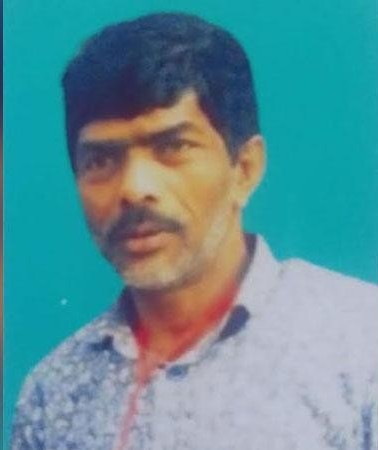On August 5, 2024, as freedom-loving citizens poured into the streets to celebrate the fall of Sheikh Hasina’s rule, one family in Dhaka was gripped by heartbreak.
Md Ishaq Jamaddar, 47, a day labourer and devoted political activist, was shot dead during a victory procession near Shyamoli Club Ground. He had joined the uprising from the very beginning, risking everything for a free and just Bangladesh. A police bullet struck his left arm and passed through his chest. He died shortly after.
“It was a day of joy for the nation, but tragedy for us,” said his eldest son, Md Sabuj Jamaddar, 29, in an interview. “Victory came, but my father didn’t live to see it. That’s our greatest sorrow.”
Sabuj, who works as a salesman at a Walton showroom in Shampa Market under Adabor Police Station, recalled the pain of losing a father who was not only a breadwinner but a pillar of strength. Ishaq lived with his family in a modest tin-roofed rented house in Baitul Aman, North Adabor. He originally hailed from Bebajiakhali village in Bamna upazila, Barguna. During the day, he worked as a transporter; at night, a watchman.
More than just a labourer, Ishaq was a community leader and political figure — the organizing secretary of BNP’s Baitul Aman Unit No. 6. Friends and colleagues remembered him as kind-hearted, humble, and committed to his beliefs.
“He never mistreated anyone,” said Achim Uddin, 50, a fellow van driver. “He paid our fares to attend rallies and sometimes even gave us clothes. He was selfless.”
BNP Unit President Delwar Howlader remembered Ishaq’s final moments. “He marched to Shyamoli with us that morning. After our general secretary Abdul Mannan Fakir was injured, we rushed him to Suhrawardy Hospital. Soon after, we heard that Ishaq bhai had been shot. He gave everything to this movement — never asked for anything in return.”
Ishaq is survived by his wife Fatema Begum, 44, and two sons — Sabuj and Md Sajeeb Jamaddar, 25, a mason. Sabuj has a three-year-old daughter, and Sajeeb a four-year-old son.
“My father adored his grandchildren,” Sajeeb said, tears in his eyes. “Every day when he came home, they ran into his arms. He loved holding them both at once.”
Now, the family is struggling. “He paid most of the household expenses,” said Sajeeb. “We just managed the rent. Now we’re left with his debts, and no way to repay them.”
Since his death, Fatema Begum has barely spoken. “She cries alone, behind closed doors,” Sajeeb said.
“I don’t want anything from anyone,” Fatema said quietly. “I just want justice. I want to see the killers punished in my lifetime.”
Sabuj recalled his last conversation with his father on the day he died. “He came home around noon, had lunch, and went back out. I called him at 2:00pm — he said he was near Shyamoli. By 5:00pm, I heard he’d been shot.”
Several others were wounded and killed that same day in the Shyamoli area. “At Suhrawardy Hospital, the bodies were stacked one after another,” Sabuj said. “Most of those killed were from our neighborhoods — Adabor, Shanirbil, Tikkapara.”
Ishaq’s body was returned to the family by 7:30pm. A first namaz-e-janaza was held at Baitul Aman Mosque. That night, the family left for their village. After arriving at 6:00pm the next day, a second janaza was held at 10:30pm. He was laid to rest beside his parents.
Despite their grief, the family clings to hope.
“We want this new Bangladesh — earned with the blood of martyrs — to be truly free,” said Sabuj. “People should live with dignity. The poor should have food and shelter. Only then will my father’s sacrifice, and that of so many others, be truly honored.”


